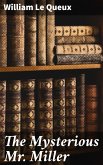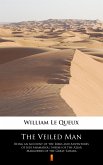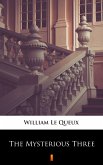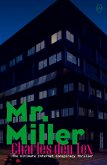We were standing together in the small shabby bedroom of the boarding-house wherein I lived in Granville Gardens, facing the recreation ground close to Shepherd's Bush Railway Station. The stifling July day was at an end, and the narrow room was lit by the soft hazy glow of the fast-fading London sunset. Through the open window came the shouts of children at play upon the "green" opposite, mingled with the chatter of the passers-by and the ever-increasing whirr of the electric trams. Within that faded, smoke-grimed chamber of the dead was silence. Upon the bed between us lay the dead stranger-the man who was a mystery.
Dieser Download kann aus rechtlichen Gründen nur mit Rechnungsadresse in A, B, BG, CY, CZ, D, DK, EW, E, FIN, F, GR, HR, H, IRL, I, LT, L, LR, M, NL, PL, P, R, S, SLO, SK ausgeliefert werden.









